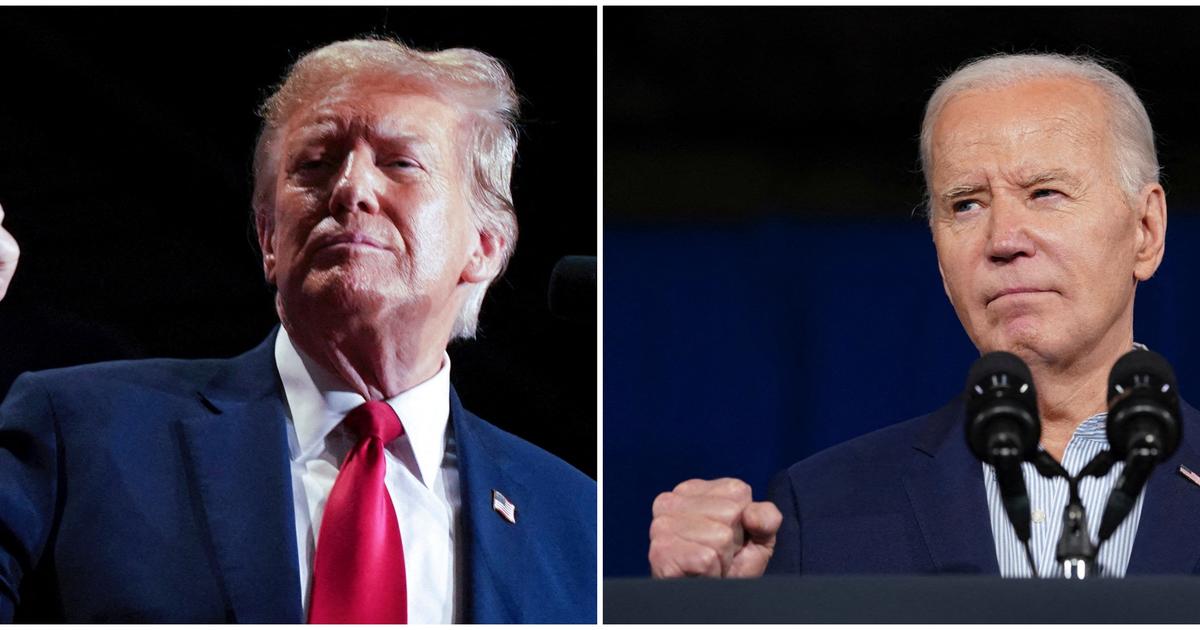Joe Biden's first 100 days in the White House seemed like an exhalation. Taking hold of the executive power, the new president of the United States launched an unusual battery of decrees and memoranda with which he buried great symbols of the era of Donald Trump: he decided to return to the Paris Climate Agreement, ordered to stop the construction of the wall in the border with Mexico and eliminated the veto of transgender people in the Army, among other measures. He also pushed for a $ 1.9 trillion [1.6 trillion euro] economic recovery plan and announced other social support programs that evoked Franklin Delano Roosevelt's New Deal. With regard to the exterior, he radically changed the tone towards the allied countries, declared the return of multilateralism and received praise from Europe for the audacity of his projects.
More information
Senate Democrats Push for $ 3.5 Trillion Plan to Advance Biden's Reforms
Biden Unveils $ 2 Trillion Infrastructure Plan to Create Millions of US Jobs
Hurricane Biden, however, has begun to lose steam as it approaches its first six months in office. Several of his big legislative projects, such as immigration reform, police or gun control measures, have been stalled upon their arrival in Congress due to the weak Democratic majority. The law of access to vote was shipwrecked in June in the Senate. And the ambitious infrastructure plan is still under negotiation. Biden announced a month ago a bipartisan preliminary agreement with a lower budget (1.2 billion, compared to the initial 2.3), but this week they are still trying to close the last fringes. It has even punctured the vaccination goal that the Democrat had set for July 4, coinciding with Independence Day, and the United States suffers a resurgence of cases of the delta variant. The honeymoon,in short, it is over.
The economy is smiling at the president, experiencing the highest growth rates in 40 years, but fears about inflation are growing, at the highest since 2008. Last Monday he defended that it is a “temporary” price increase and “ expected".
Concern about the future of Biden's agenda begins to grow in the more progressive ranks of the Democratic Party at the Republican Party's retaining wall on Capitol Hill.
The Californian congresswoman Ro Khana, who was a member of the electoral campaign of the leftist Bernie Sanders, raised it with these words in a recent statement to the Associated Press: “There is a lot of anxiety (...), this is the question for the president Biden, what kind of president do you want to be. "
Biden's ambition to reach deals with the Republicans has yet to crystallize into hardly anything. For New Yorker Alexandria Ocasio-Cortez, one of the party's new stars, "the romanticism about bipartisanship [in the sense of consensus between the two major parties] comes from a Republican era that simply no longer exists." The leader of the Republicans in the Senate, Mitch McConnell, agreed with that approach in a statement a couple of weeks ago. "The era of bipartisanship is over," he decreed.
The episode of the new voting law, one of the great political battles of this legislature, represents a good example of the problems that await Biden from now on. Unlike the bailout plan, this is not legislation that can be passed with a simple majority in the Senate, but requires the support of 60 out of 100 senators. Democrats control the House of Representatives and are even 50-50 in the upper house, but in the latter case, Vice President Kamala Harris can cast a vote that resolves a tie when the bill under discussion requires no more than half plus one of the votes.
That is not the case with the so-called People's Law, the most far-reaching electoral reform in decades. Last March, Democrats launched the first version in the House of Representatives in order to counteract the restrictions imposed in several Republican states in recent months and that,
de facto
, limit the participation of the disadvantaged and minorities. This Tuesday, in the Senate, the norm did not even reach the final vote phase in the plenary session. The 50 Republicans even blocked their debate by voting together and preventing the supermajority of 60 senators.
That majority is a norm established by filibustering, a concept that must be engraved in mind to understand what remains of Biden's term in the United States. It is an archaic and very colorful parliamentary tactic that allows any senator to object to the procedure and the vote on a certain bill. In the old days, legislators would talk for hours on any subject - there are high-profile cases, like Strom Thurmond's in 1957, who delivered a speech that lasted 24 hours and 18 minutes - in order to perpetuate the debate and prevent the vote. Today, in practice, it has lost the theatrical part and it means that a senator can ask for the blockade and he breaks with 60 votes, that is, the law is approved with a three-fifths majority.
Issues such as the Covid rescue package, however, are shielded from filibustering because an emergency budget reconciliation procedure is used.
Also the appointments of Supreme Court judges, for example, have passed to be approved by simple majority since the Republicans changed the rules - they used the so-called "nuclear option", in parliamentary jargon - in 2016. But when a law needs to scratch support Among Republicans, curves come.
The contest between Democrats over whether to end filibustering has gained prominence as Biden tries to continue to perform his magic as a veteran member of the Senate, a Chamber in which he worked for decades and in which he made a reputation as a dealmaker with the opposition. .
The pressure is mounting for Democrats to move important agenda chapters, such as infrastructure, through an emergency budget reconciliation procedure, something that depends largely on Democratic senators Joe Manchin of West Virginia, the most centrist of the country. Camera; and Kyrsten Sinema, from Arizona. Both are opposed to ending the filibuster rule.
The Democrats of the Lower House reached a consensus last week on an investment and spending proposal worth 3.5 trillion dollars, with measures to promote the fight against climate change and poverty, strengthen the public health program for the third age (Medicare) and other key targets on the Biden agenda. But they don't have the yes from their Democratic partners on the other side of the Capitol. Another complex semester awaits Biden's negotiating skills.

/cloudfront-eu-central-1.images.arcpublishing.com/prisa/CE6LDR3TVEAJYYJVRQ7IRFW7SQ.jpg)







